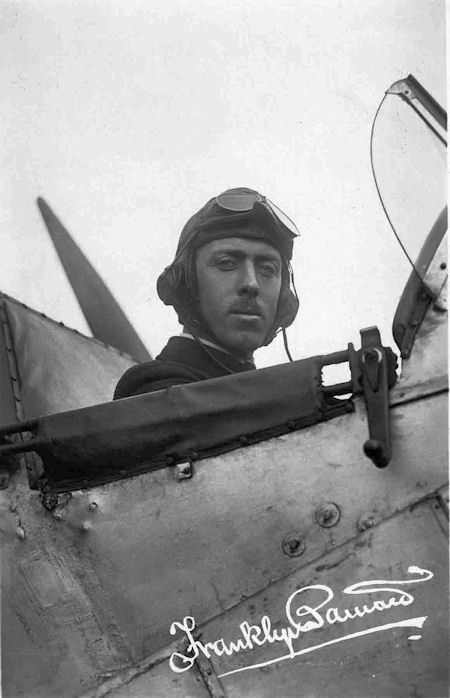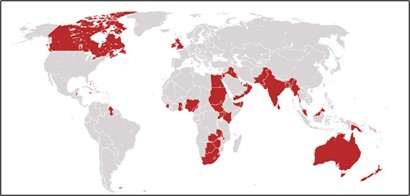|
Capt Franklyn Leslie Barnard OBE AFC |
||
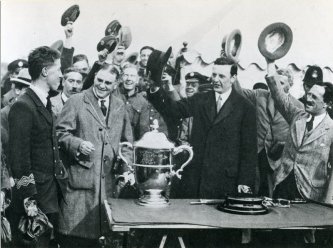 |
||
|
Winner of the first King's Cup in 1922. "an exceptional pilot - careful, skilful, and daring" and "his ability as an engineer was fully equal to his skill as a pilot". b. 1896; his father, Owen Barnard, was a stockbroker's clerk (and not related to Charles Barnard's father). AFC in WWI; chief pilot for Instone (later) Imperial Airways. OBE in 1927. Killed in July 1927 while testing propellers for the Bristol Badminton which he had entered for the King's Cup Race, which crashed at Filton after the engine seized. Major Beaumont, appearing for Imperial Airways at the inquest, said the company felt it had "lost one of the world's magnificent airmen". 1927 It is with profound regret that we have to record the death, as the result of a flying accident on Thursday, July 28, of Capt. F. L. Barnard. Capt. Barnard—one of our mostexperienced and popular pilots—was carrying out a test flight on the Bristol " Badminton " ("Jupiter VI ") biplane, which had been entered for the King's Cup Air Race, at Filton aerodrome, when, according to eyewitnesses, the engine suddenly stopped and the machine crashed to the ground just outside the 'drome from a height of about 200 ft. When a number of people who had been watching the flight arrived in the field where the machine had crashed, the latter was found completely wrecked, with the engine embedded in the ground, and the unfortunate pilot lying in the cockpit beyond human aid. From evidence at the inquest, which was held on July 29, it appears that when Capt. Barnard's engine failed, he put the machine into normal gliding angle and attempted to land. While manoeuvring to do so, the machine lost flying speed and stalled from about 80 ft. Capt. Barnard had already made three other test flights on the machine, trying out different airscrews. Capt. Barnard's loss to the aviation world is a great one indeed, for he was an exceptional pilot, careful, skilful, and daring—but daring only when flying alone or testing. He served in the Air Force during the war, and was awarded the Air Force Cross. Following the Armistice he was pilot to No. 24 Communication Squadron, when he carried many distinguished personages to and from the Continent. He then became associated with Instone Air Lines, and later, when Imperial Airways was formed, was their chief pilot. His skill as a pilot was such that he was entrusted with many important aerial missions—the most conspicuous of which was the piloting of the Imperial Airways D.H. "Hercules" air liner, carrying Sir Samuel Hoare, Lady Maud Hoare and party from London to Cairo on the inaugural flight of the Egypt-India service. He also, it will be remembered, took part in previous King's Cup races, being the winner in1922 and 1925, and flying last year the Bristol " Badminton "in its original form. Capt. Barnard leaves a widow and young son, to whom, in common with his many, many friends, we offer our deepest sympathy." - 'Flight' |
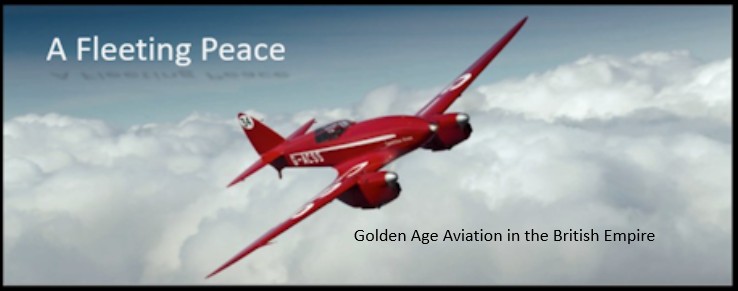
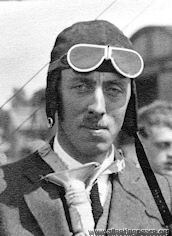 photo: 1925, aged 29
photo: 1925, aged 29 